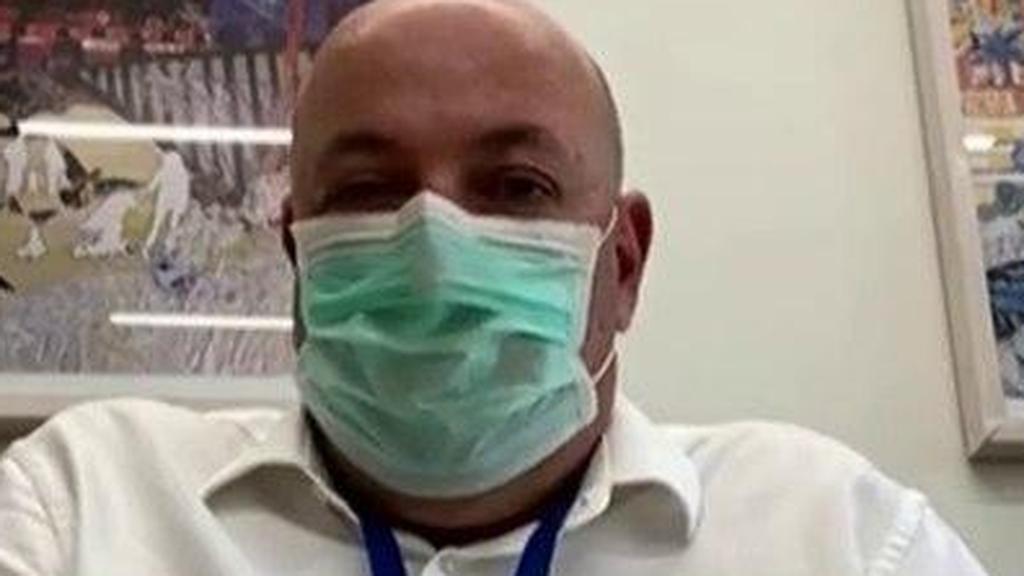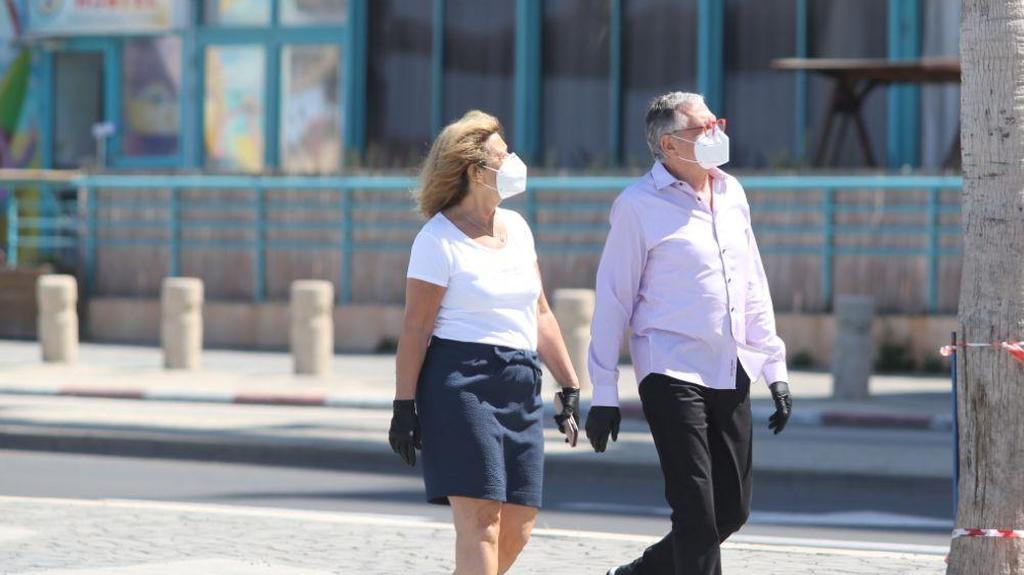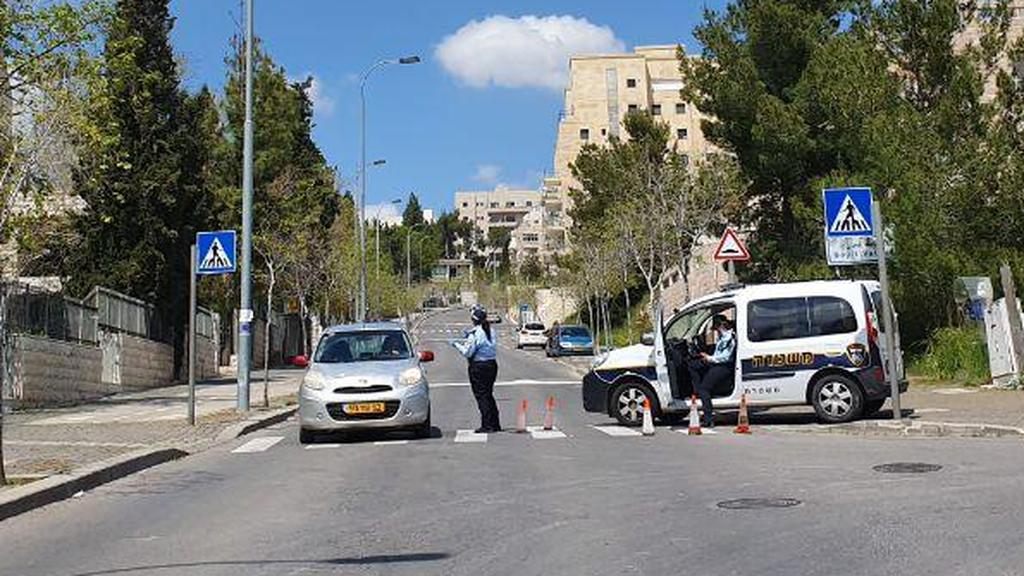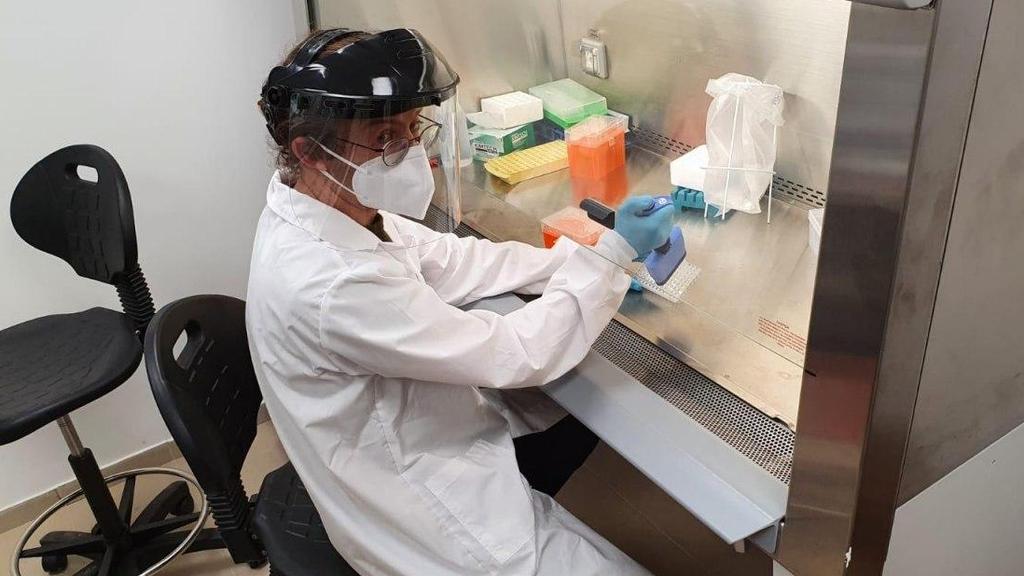Getting your Trinity Audio player ready...
Health Ministry No. 2 Prof. Itamar Grotto said Sunday that Israel had been successful in its containment efforts to slow the spread of the coronavirus.
"Now we must make sure we are not mistaken and continue restrictions until after the Passover holiday," he told Ynet.
"Now we must decide how to see how to move forward," Grotto said, warning that number of infected and seriously ill patients from Bnei Brak have not yet been fully analyzed.
The virus has raged through the predominantly ultra-Orthodox city, where the rate of infection is 10 times higher than in neighboring Tel Aviv.
4 View gallery


Prof. Itamar Grotto wears a face mask as he talks to the Ynet studio, April 12, 2020
(Photo: Yaron Brener)
Grotto said there must be careful consideration of when and how restrictions could begin to be lifted.
"There are some things that everyone agrees on," he said. "The necessity of wearing face masks, further testing for the virus and the need to maintain social distancing."
But regarding the timing of the lifting of restrictions, Grotto said health officials think now is too early to be considering such a move.
The government had indicated it wanted to begin lifting restrictions after the Passover holiday, which ends on Wednesday night.
"I think we must first have a plan in place for the public to know and understand," he said. "This will give people and the economy the security they need."
4 View gallery


People wearing face masks and gloves against coronavirus in Tel Aviv
(Photo: Moti Kimchi)
Grotto said the drop in the amount of testing conducted for coronavirus is a result of a shortage in materials needed for the testing process and not the fault of the Health Ministry.
"We are moving ahead and adding more labs including the Weizmann Institute and Tel Aviv University, so we will be hitting a larger number of daily tests," he said.
He insisted more tests would not have changed the rate of infections in care facilities and retirement homes, which have also seen high levels of confirmed cases.
The health expert said Israel is working on stocking up on serology tests to identify antibodies for the virus which could give a clearer picture of a herd immunity in the long term.
"We will conduct millions of serology tests," Grotto said, adding that thousands of such tests could be carried out daily. He said that the ministry insists on high-quality testing while some tests available on the market are not reliable enough.
Israelis were required to wear face masks when leaving their home as of Sunday.
Grotto said the health and defense ministries were working on making masks available to the general public at a lower price and tapping Israeli industry to produce masks locally, but said homemade solutions could also be effective.



